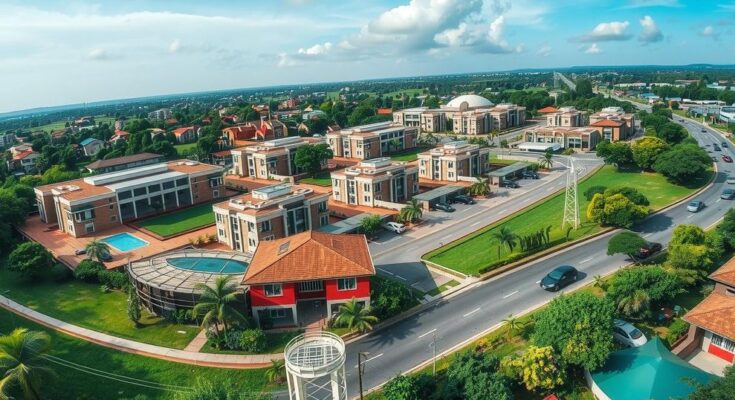The World Bank’s Country Economic Memorandum on Equatorial Guinea emphasizes the need for effective institutions, increased investment in education and health, an improved business climate, and enhanced digitalization and trade. The report highlights past economic growth driven by oil, now jeopardized by declining revenues, and stresses urgent reforms to foster diversification and sustainable growth.
On March 4, 2025, the World Bank released its inaugural Country Economic Memorandum report on Equatorial Guinea, titled “Equatorial Guinea Country Economic Memorandum – Building the Foundations for Renewed, More Diversified and Inclusive Growth.” The report highlights the critical need for effective institutions and well-designed fiscal policies to foster sustainable economic growth and diversification, particularly in light of the decline in hydrocarbon revenues since 2015.
The discovery of substantial oil reserves transformed Equatorial Guinea into one of Sub-Saharan Africa’s fastest-growing economies between 1996 and 2004, achieving Upper-Middle-Income status. However, the country now faces a prolonged recession due to insufficient diversification and dependence on oil, which represents around 80% of total public revenues. To counter this trend, reforms are essential for enhancing fiscal management and creating a foundation for robust economic growth beyond hydrocarbons.
Investment in education and health services is paramount. Despite increases in access to education, government spending remains low at 0.9% of GDP as of 2022, significantly below the averages in both CEMAC and Sub-Saharan Africa. Furthermore, poor maternal and child health outcomes highlight the need for reform and investment in health care. Notably, Equatorial Guinea lacks a national social assistance program, with social spending at a mere 0.1% of GDP, necessitating urgent measures to enhance social protection and improve health and educational outcomes.
Cultivating a conducive business environment is critical for achieving the government’s National Sustainable Development Strategy. Despite some regulatory progress, substantial obstacles persist for businesses, including cumbersome entry barriers and a lack of access to credit. Enhancing the effectiveness of business registration and reducing capital requirements are crucial steps towards fostering private sector growth and elevating operational standards in Equatorial Guinea.
Digitalization, trade, and ecotourism are vital components for integrating more deeply into the global economy. While trade openness exceeds that of many peers, the recent downturn in global oil prices has affected Equatorial Guinea’s revenue streams. Improving logistics and addressing trade facilitations, alongside leveraging the country’s ecotouristic potential, will be pivotal in driving economic diversity and fostering digital connectivity in underserved sectors.
In summary, the World Bank’s report underscores urgent needs for political and economic reforms in Equatorial Guinea. Emphasizing institutional effectiveness, investment in education and health, improved business conditions, and enhanced digital connectivity are necessary to mitigate the country’s economic challenges. Achieving this multifaceted approach is crucial for ensuring sustained and inclusive growth, shifting reliance away from hydrocarbons, and promoting new economic opportunities.
Original Source: www.worldbank.org




